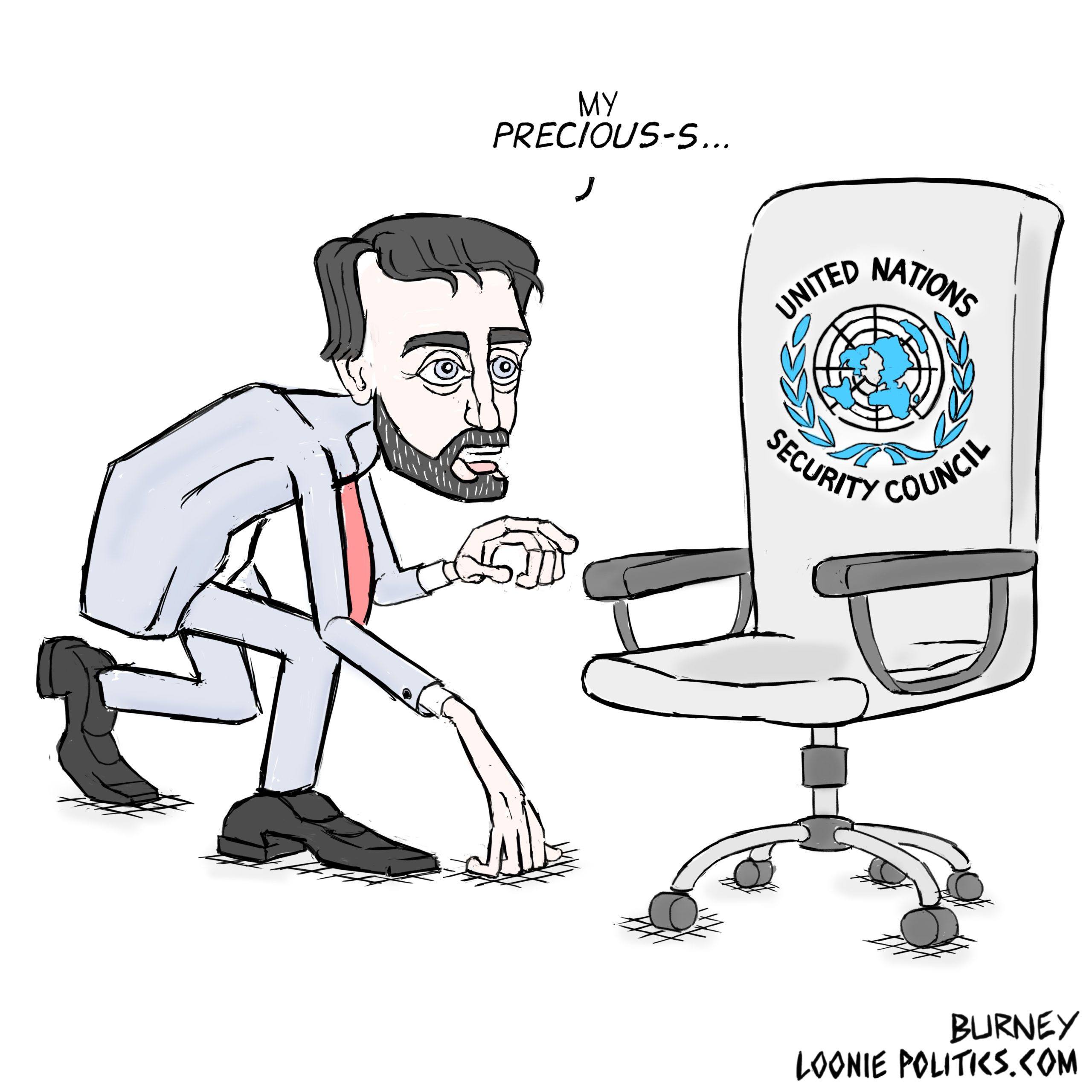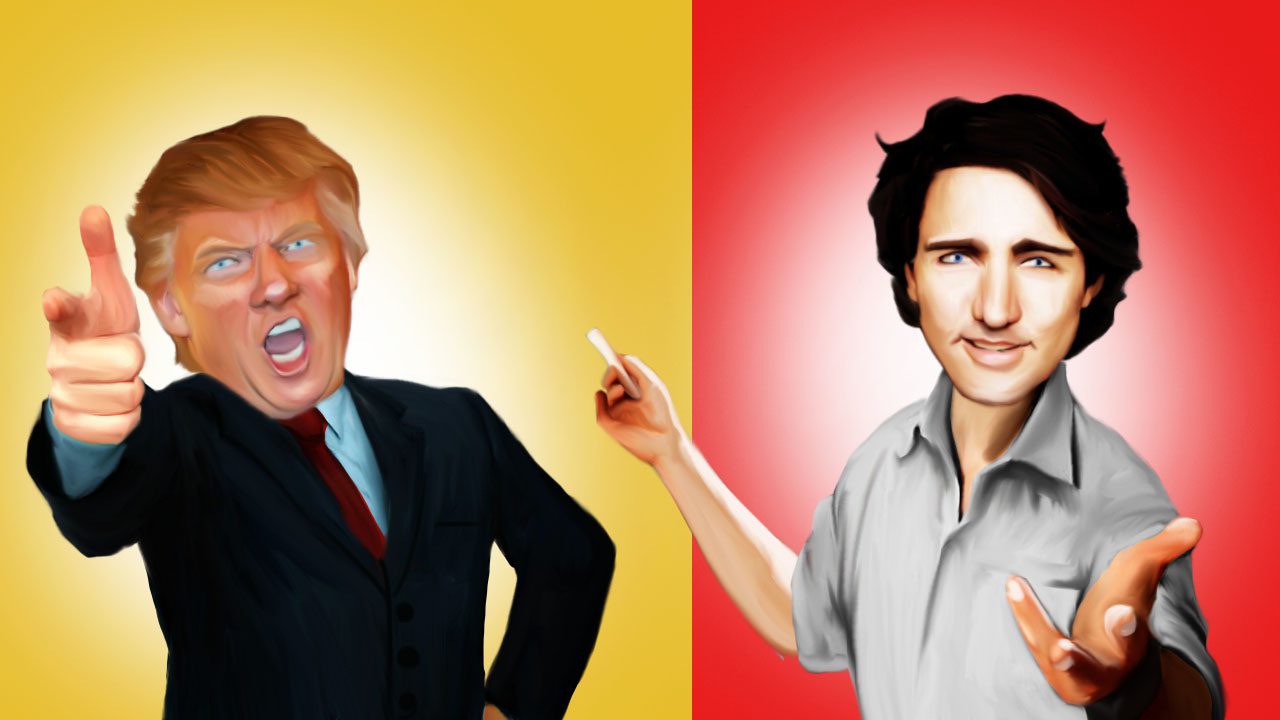Mere months after his election into office as Prime Minister, Justin Trudeau announced Canada's bid for one of the two available seats on the United Nations Security Council for the 2021-2022 term.
It was an incredibly risky decision for the rookie PM.
Canada's global reputation had already taken a hit the last time the country competed, and subsequently failed in its bid for a UN seat under the Harper Conservatives. A second consecutive defeat would only diminish Canada's standing even more.
Furthermore, with only four years to campaign, Canada would be entering the race at a disadvantage. Both of its two distinguished competitors, Ireland and Norway, had long since announced their candidacies for a seat, allowing them plenty of time to woo the global electorate.
Still, a potential victory at the UN proved far too enticing for Trudeau to resist. Not only would a win at the Security Council increase Canada's influence abroad, but it would also boost Trudeau's own brand recognition, as well as that of the governing Liberal Party.
After a near decade of controversial Conservative rule, the Liberals were in active search of differentiating themselves from their predecessors in every manner possible. And what better way to accentuate the differences between Trudeau and the reviled Stephen Harper, than a win at the Security Council?
It should have resulted in a complete revamp of policy to give Canada a greater presence on the world stage; one where it could significantly contribute to furthering the UN's goals of international peace and security.
Unlike the Harper Conservatives who had been mean-spirited and inward-looking, the Trudeau Liberals promised instead to be charitable, compassionate, and international in outlook.
Lamentably, the Trudeau Liberals have not lived up to their word. After over four years in office, the promised revamp of foreign policy instead resulted only in a minor tinkering of prioritization.
Peacekeeping contributions remains at abysmally low levels. Foreign aid continues to be vastly underspent. And Israel still largely receives Canada's unequivocal backing, even as its illegal settlements are continuously extended into Palestinian territory, fueling a never-ending human rights calamity.
Its like nothing ever changed from the Harper years in office.
Now, with the UN General Assembly just days away from concluding its elections, Canadians must ask themselves yet again; do we deserve a spot?
It is a challenging question to ask of ourselves.
As proud citizens and patriots, surely all Canadians wish to see their country represented at the highest circles of global influence. That Canada would benefit from having a seat at the table with all the world's major political players is surely beyond refute.
But do we really deserve that rare honor and privilege?
More specifically, is Canada better suited than either of its fellow competitors — competitors, who, keep in mind, commit more personnel to peacekeeping missions and outspend us on their aid contributions — to advance the UN's goals of international peace and security?
The answer is no.
The fundamental truth is Canada has not lived up to its reputation as a force for good in its international engagement. Nor for that matter has Trudeau lived up to his promise to "restore Canadian leadership in the world."
This assertion will surely trouble some Canadians and enrage countless others.
And how could it not?
We have become imbued with the belief that Canada is, as one New York Times columnist put it, a "moral leader of the free world." With such preconceived, high appraisals of our country, we sometimes fail to grasp the true degree of our own shortcomings.
Unfortunately, to state that Canada's recent record of global engagement has only some marginal shortcomings would be a severe understatement. In reality, Canada's influence on the international stage is often far more nefarious than many would like to believe.
After all, Canada ranks as one of the world's leading exporters of arms, including to some of the globe's most repressive regimes. Just last month, the federal government quietly pushed ahead with its agreement to sell light armoured vehicles to Saudi Arabia, a country with a particularly appalling record for committing human rights abuses. That Canada continues to export its arms to the Saudi regime, even as they persist in waging a deadly war in neighbouring Yemen, is beyond excusable.
And that is not Canada's only sin.
Canadian mining companies continue to commit injustice after injustice, causing untold ecological damage and human rights infringements across the globe. In response, the federal government sits idly by, complicity enabling their abuses.
Not only this, but Canada's federal government has spearheaded harmful efforts to oust Venezuela's UN-recognized government from office. This, in stark contrast to one of Canada's Security Council opponents, Norway, which has instead attempted to peacefully mediate between Venezuela's government and opposition camps.
As stated in a petition circulating online, signed by eminent scholars and social critics like David Suzuki and Noam Chomsky "Canada is not acting as a benevolent player on the international stage."
Of course, Canada may yet win a seat once voting at the UN has come to an end.
As a member of the G7, and as the eighth-largest donor to the UN, Canada has significant pull on the world's stage. In addition, Trudeau's last minute charm offensive could prove effective in securing votes, as could the considerable efforts of Joe Clark, our special envoy for Canada's bid for a UN Security Council seat, and Marc-Andre Blanchard, Canada's Ambassador to the UN.
But that will not vindicate Canada's s record of global engagement. Only once our federal government corrects these injustices and begins acting as a driving force for the "real change" once promised by Trudeau, will Canada deserve a seat.
It is a sad situation to acknowledge, but for its second time in recent history, the government of Canada has not earned itself a spot on the Security Council.
Photo Credit: Jeff Burney, Loonie Politics








